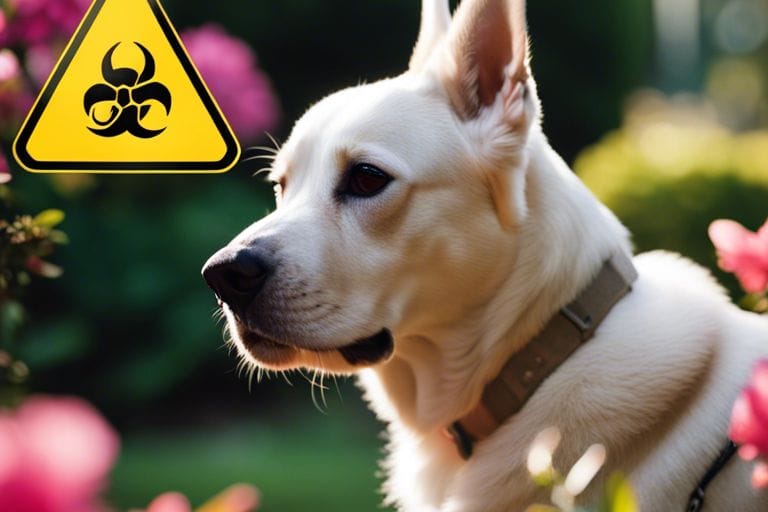Can Dogs Eat Azaleas? Crucial Warning for Pet Owners!
Many pet owners are unaware of the toxicity of azaleas to dogs. It is crucial that you understand the dangers associated with azaleas and ensure that your four-legged friend is kept away from these plants at all costs. Azaleas contain grayanotoxins, which can cause a range of severe health problems for your dog if ingested. Symptoms of azalea poisoning in dogs include vomiting, diarrhea, drooling, and even more serious complications such as seizures and cardiac arrest. It is important to keep azaleas out of reach of your dog and seek immediate veterinary care if you suspect they have consumed any part of the plant. Your pet’s safety is paramount, so be sure to educate yourself on the potential dangers of azaleas and take the necessary precautions to keep your furry friend healthy and happy.
Key Takeaways:
- Azaleas are toxic to dogs: Azaleas contain a toxin called grayanotoxin, which can be deadly for dogs if ingested. It’s important for pet owners to keep their dogs away from azalea plants to avoid poisoning.
- Symptoms of azalea poisoning: If a dog consumes azalea leaves or flowers, they may experience symptoms such as vomiting, diarrhea, drooling, weakness, and in severe cases, seizures and coma. Immediate veterinary attention is crucial if ingestion occurs.
- Preventive measures: Pet owners should remove azalea plants from their homes and yards, and be vigilant when walking dogs in areas where azaleas grow. Educating oneself about toxic plants and keeping an eye on what pets are exposed to can prevent accidental poisoning.
Understanding Azaleas
Assuming you’re a dog owner, you always want to ensure that your furry friend is safe and healthy. This includes being aware of the plants and flowers in your home and yard that could potentially pose a threat to your pet. One common ornamental plant that pet owners should be cautious of is the azalea.
What Are Azaleas?
Azaleas are a type of flowering shrub that belong to the Rhododendron genus. They are known for their vibrant and colorful blooms, making them a popular choice for gardens and landscaping. However, these plants contain a toxin known as grayanotoxin, which can be harmful if ingested by your pet.
Toxic Components in Azaleas
The toxic component in azaleas is grayanotoxin, which is found in all parts of the plant, including the leaves, flowers, and stems. If your dog ingests any part of the azalea plant, they may experience symptoms such as vomiting, diarrhea, weakness, and in severe cases, it can lead to cardiovascular and central nervous system issues. It’s important to note that even a small amount of azalea ingestion can be dangerous for your pet, so it’s crucial to keep them away from these plants.
It’s important to be diligent about keeping azaleas out of your home and yard, especially if you have a curious or mischievous pet. If you suspect that your dog has ingested any part of an azalea plant, you should contact your veterinarian immediately. Remember, it’s always better to be safe than sorry when it comes to your pet’s health.

Effects of Azaleas on Dogs
Obviously, it’s crucial to understand the potential effects of azaleas on your dog if you suspect they have ingested any part of this plant. Azaleas contain grayanotoxins, which can be extremely toxic to dogs if ingested in large enough quantities. You should take any suspicion of azalea ingestion seriously and seek immediate veterinary help. For further information on this, you may want to check out this question from a concerned pet owner on JustAnswer.
Short-Term Health Effects
If your dog has ingested azalea leaves, you may notice symptoms such as vomiting, diarrhea, excessive drooling, weakness, and possibly even seizures. These symptoms can occur within hours of ingestion and can escalate quickly. It’s crucial to seek veterinary attention immediately if you notice any of these signs in your dog. Even a small amount of azalea can cause significant harm to your pet, so don’t delay in seeking help.
Long-Term and Potentially Fatal Consequences
Long-term effects of azalea toxicity can be severe and potentially fatal. Ingestion of larger amounts of azalea can lead to more serious complications such as irregular heart rhythm, drop in blood pressure, and in extreme cases, cardiac arrest. If left untreated, azalea poisoning can be deadly for your dog, so it’s crucial to act quickly and seek emergency veterinary care.
Prevention and Safety Measures
Unlike some other toxic plants, azaleas are often found in home gardens and landscaping. This makes it especially important to take preventative measures to keep your pets safe. Here are some crucial steps to take in order to protect your dog from azalea poisoning.
Creating a Pet-Safe Environment
When it comes to creating a pet-safe environment in your yard, it’s important to take a proactive approach. Make sure to keep azalea plants out of your dog’s reach by placing them in areas that are inaccessible. Consider fencing off your garden or using planters to keep azaleas away from areas where your dog spends a lot of time. Additionally, keep a close eye on any public areas you may frequent with your dog, such as parks or sidewalks, to ensure they are free from azalea plants.
What to Do If Your Dog Ingests Azaleas
If you suspect that your dog has ingested azaleas, it’s crucial to act quickly. The first step is to remove any remaining plant material from your dog’s mouth and immediately contact your veterinarian or a pet poison control hotline. Be prepared to provide details about the amount and time of ingestion, as this information will help determine the best course of action. Your vet may recommend inducing vomiting or administering activated charcoal to help prevent absorption of the toxins into your dog’s system. Do not wait for symptoms to appear – early intervention is key to preventing serious illness or even death in your pet.

Can Dogs Eat Azaleas? Crucial Warning for Pet Owners!
Ultimately, it is crucial for pet owners to be aware of the dangers of azaleas to dogs. Azaleas contain toxins that can be extremely harmful to your furry friends if ingested. It is important to keep azalea plants out of reach of your pets and to be proactive in monitoring their environment to ensure their safety. If you suspect that your dog has ingested any part of an azalea plant, it is essential to seek immediate veterinary care. Being informed about the potential dangers of azaleas can help you protect your beloved pets from unnecessary harm.
FAQ
Q: Can dogs eat azaleas?
A: No, dogs should not eat azaleas. Azaleas contain toxins called grayanotoxins, which can be extremely harmful to dogs if ingested. Symptoms of azalea poisoning in dogs include vomiting, diarrhea, drooling, and in severe cases, coma or death. It’s crucial for pet owners to keep their dogs away from azalea plants to prevent poisoning.
Q: What should I do if my dog has ingested azaleas?
A: If you suspect that your dog has ingested azaleas, it’s important to seek veterinary care immediately. Time is of the essence when it comes to azalea poisoning, and prompt treatment can make a difference in your dog’s recovery. Contact your veterinarian or an animal poison control hotline for guidance on how to proceed.
Q: How can I protect my dog from azalea poisoning?
A: To protect your dog from azalea poisoning, it’s essential to prevent access to azalea plants. If you have azaleas in your yard or garden, make sure they are out of reach of your dog. Additionally, educate yourself and your family members about the dangers of azalea ingestion for dogs, and keep a close eye on your pet when outdoors. Being vigilant and proactive can help safeguard your dog’s well-being.

